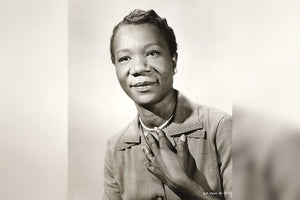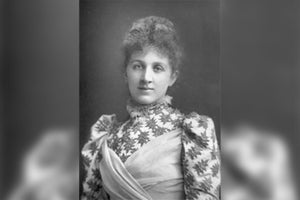Who was Dorothea Dix?
Dorothea Dix was a famous activist in the early years of the 19th century, a teacher, author, and reformer. Born in 1802 and died in 1887. She drastically brought change to the medical industry during her very productive lifetime. Dorothea Dix is remembered for championing causes for indigenous populations and the mentally ill that helped in the establishment of brand new institutions across Europe and the United States.
By taking up this work, Dorothea Dix challenged the notions of illness and reforms in the 19th century. She also assisted in the recruitment of nurses for the Union army during the American Civil War. She was also an advocate for the activities of female nurses. This resulted in a transformation in the nursing field. Dorothea Dix was a teacher, author, and reformer.
5 Facts you didn’t know about Dorothea Dix
- Dix never married.
- Dorothea Dix managed to come up with a bill to help the mentally challenged pass through the U.S. Congress, unfortunately, President Franklin Pierce had the bill vetoed.
- She was doing her work without any expectations of credits, her main aim was to help the mentally ill and the sick.
- Dorothea together with her nurses, helped the wounded and the sick Confederate soldiers while working as a nurse for the Union.
- Dorothea’s influence came from her religious background which taught her on helping others by taking action.
Inspirational Quotes from Dorothea Dix
“I proceed, gentlemen, to call your attention to the present state of insane persons confined within the commonwealth; in cages, closets, cellars, stalls, pens; chained, naked, beaten with rods, and lashed into obedience.”
“[To a woman who claimed she'd rather be dead than unconfined and unfashionable:] My dear, if you continue to lace as tightly as you do now, you will not long have the privilege of choice. You will be both dead and out of fashion.”
“In proportion as my own discomfort has increased, my conviction of the necessity to search into the wants of the friendless and afflicted has deepened. If I am cold, they too are cold; if I am weary, they are distressed; if I am alone, they are abandoned.”
“Man is not made better by being degraded; he is seldom restrained from crime by harsh measures, except the principle of fear predominates in his character; and then he is never made radically better for its influence.”
Dorothea Dix Biography
Dorothea Childhood:
Dorothea was born on the 4th April 1802 in Hampden, Maine. She experienced a difficult and lonely childhood since her father was away much of the time and an alcoholic. This made her mother suffer from depression. Being the eldest child out of three children, Dorothea had to take care of their family's small room house and helped in raising her siblings at a young age.
Her father, Joseph Dix, was a strict man though prone to alcohol, taught Dorothea how to read and write which helped to foster her love of books and education. When she was 12 years old, Dorothea travelled to Boston where she lived with her grandmother.
Education and Early Career:
Dorothea was an intelligent and brilliant girl who loved education and reading books. She later found a job as a teacher. Dorothea was passionate about helping others and would often teach poor girls voluntarily and free of charge at her home. Dorothea also wrote books for children. One of her popular books was: Conversations on Common Things.
Helping Out the Mentality ill people
During her early thirties, Dorothea travelled to England. While there, Dorothea learnt about the problems faced by mentally ill people. She discovered how the mentally ill patients were treated like criminals. They were put in cages, chained, tied up and beaten. It is during this time that Dorothea felt her calling in life. Her interest was to help mentally ill people. Dorothea flew back to the United States on a mission to make the lives of the mentally ill better. She carried out her investigation in Massachusetts into the treatment of the mentally ill and noted down. She then presented her report to the state’s legislature. This hard work paid off when a bill was passed to improve mental hospital in Worcester. Dorothea travelled the country campaigning for the care of the mentally ill.
The Civil War
The Civil War broke out in 1861, and Dorothea felt the need to help out. She had established contacts in government which made her become the Superintendent of Army Nurses for the Union. She recruited, organized, and trained women nurses. Dorothea also helped set requirements for all female nurses.
Legacy Death
Even after the Civil War, she continued caring for the mentally ill and died on July 17, 1887, at New Jersey State Hospital in Trenton. Dorothea is remembered for her focus and hard work and for improving the conditions for the mentally ill.
![]() Fast Shipping
Fast Shipping![]() Subscribe to our Newsletter
Subscribe to our Newsletter![]() 🌟 New Global Competition 🌟
🌟 New Global Competition 🌟















